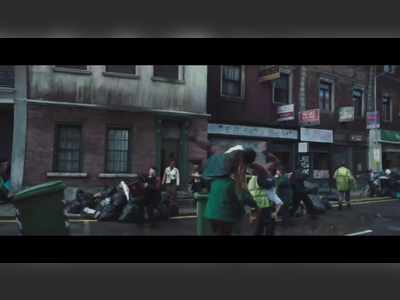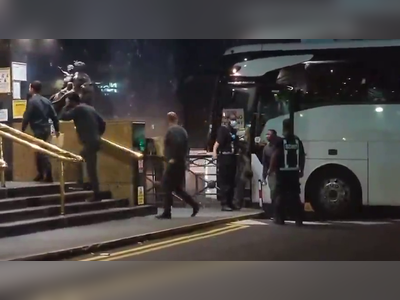Poland Begins Excavation at Dziemiany After New Clue to World War II‑Era Nazi Treasure
Pomeranian authorities authorize dig on former SS training ground in Kashubia, linked by witness accounts to Nazi assets including possible Amber Room artefacts.
Poland’s Pomeranian Provincial Conservator of Monuments issued an official permit on July 1, 2025, for archaeological and drilling operations at a site in Dziemiany, Kościerzyna County, in the northern region of Kashubia.
The location is being surveyed for a concealed Second World War–era slit‑bunker on the grounds of a former SS training area, believed to contain hidden valuables .
The excavation is led by engineer Jan Delingowski, a former merchant‑fleet radio officer who has conducted private investigations in the area for over a decade.
His interest was initiated by the testimony of a former inmate at Barczewo prison, who stated that he encountered Erich Koch—Nazi Gauleiter of East Prussia—from whom he claimed to have learned the location of wartime assets smuggled from Königsberg yet never delivered to Berlin .
Delingowski’s research proposes that trucks loaded with art, jewellery and gold diverted off the Berlinka motorway between Czersk and Człuchów in early 1945.
He associates that convoy with a coded site labeled “BSCH”, interpreted as “Bruß Schutzraum”—a concealed slit‑type bunker said to lie on a hill near a lake at an abandoned SS barracks .
Permission documents state that initial ground‑penetrating radar scans revealed subsurface anomalies consistent with a sealed bunker.
The permit allows systematic excavation under conservator oversight, and grants full state ownership over any recovered artefacts, as required by Poland’s cultural heritage laws .
If any contents are recovered, they may include priceless artworks, precious metals or panels from the Amber Room—a richly decorated Baroque chamber looted from Tsarskoe Selo in 1941 and later transported to Königsberg.
No verified trace of the Amber Room has been found since .
Archaeologists will conduct the work under the supervision of Pomeranian heritage officials, and in coordination with licensed professionals.
A university archaeologist has urged strict peer‑review and scientific methodology, noting that many similar legends in Europe have failed to yield material evidence .
This northern search occurs separately from long-publicised attempts to locate a “Nazi gold train” in southwestern Poland, between Wrocław and Wałbrzych.
That legend also centres on looted Nazi assets, but prior official investigations, including military surveys in 2016, found no substantiating evidence.
Historians and scientists have described the gold train as a myth, despite intermittent media interest .
The location is being surveyed for a concealed Second World War–era slit‑bunker on the grounds of a former SS training area, believed to contain hidden valuables .
The excavation is led by engineer Jan Delingowski, a former merchant‑fleet radio officer who has conducted private investigations in the area for over a decade.
His interest was initiated by the testimony of a former inmate at Barczewo prison, who stated that he encountered Erich Koch—Nazi Gauleiter of East Prussia—from whom he claimed to have learned the location of wartime assets smuggled from Königsberg yet never delivered to Berlin .
Delingowski’s research proposes that trucks loaded with art, jewellery and gold diverted off the Berlinka motorway between Czersk and Człuchów in early 1945.
He associates that convoy with a coded site labeled “BSCH”, interpreted as “Bruß Schutzraum”—a concealed slit‑type bunker said to lie on a hill near a lake at an abandoned SS barracks .
Permission documents state that initial ground‑penetrating radar scans revealed subsurface anomalies consistent with a sealed bunker.
The permit allows systematic excavation under conservator oversight, and grants full state ownership over any recovered artefacts, as required by Poland’s cultural heritage laws .
If any contents are recovered, they may include priceless artworks, precious metals or panels from the Amber Room—a richly decorated Baroque chamber looted from Tsarskoe Selo in 1941 and later transported to Königsberg.
No verified trace of the Amber Room has been found since .
Archaeologists will conduct the work under the supervision of Pomeranian heritage officials, and in coordination with licensed professionals.
A university archaeologist has urged strict peer‑review and scientific methodology, noting that many similar legends in Europe have failed to yield material evidence .
This northern search occurs separately from long-publicised attempts to locate a “Nazi gold train” in southwestern Poland, between Wrocław and Wałbrzych.
That legend also centres on looted Nazi assets, but prior official investigations, including military surveys in 2016, found no substantiating evidence.
Historians and scientists have described the gold train as a myth, despite intermittent media interest .










